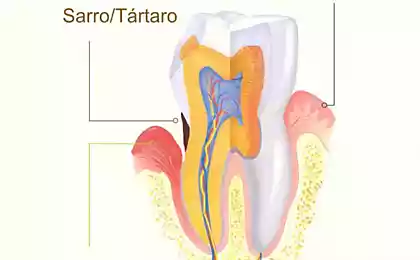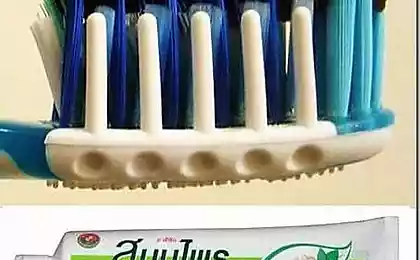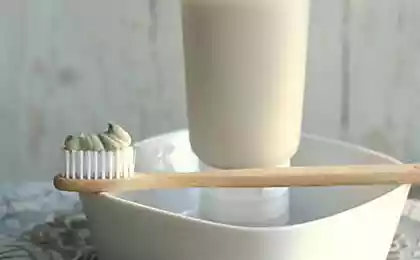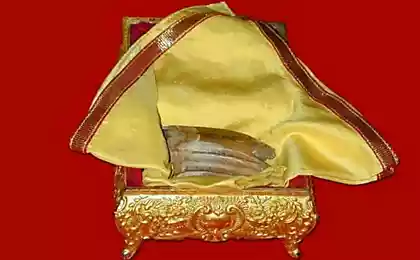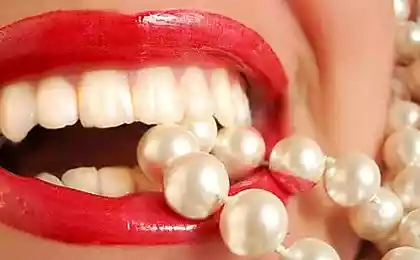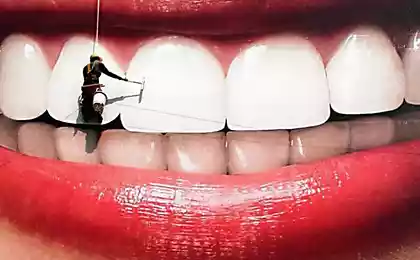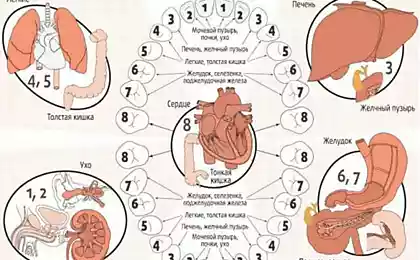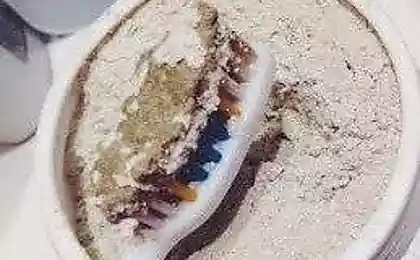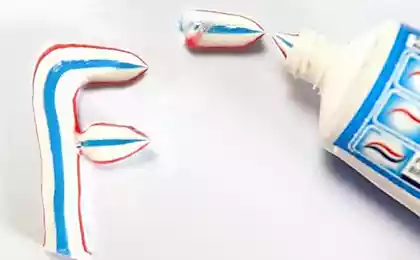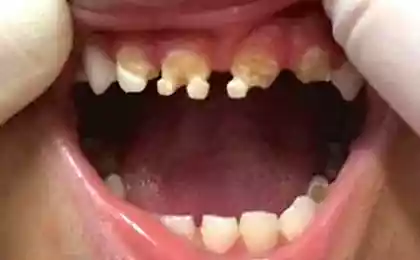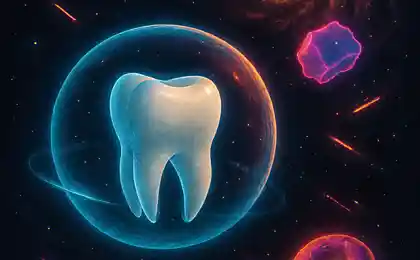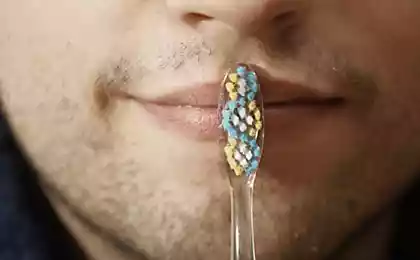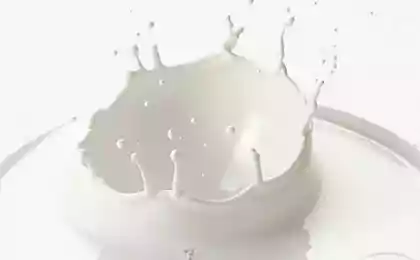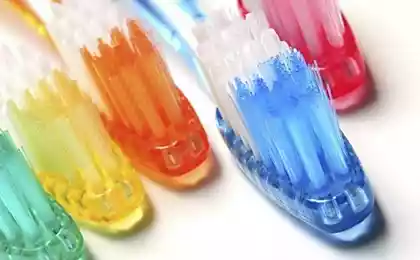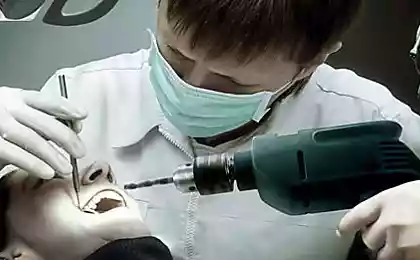543
Prevention of dental caries in children
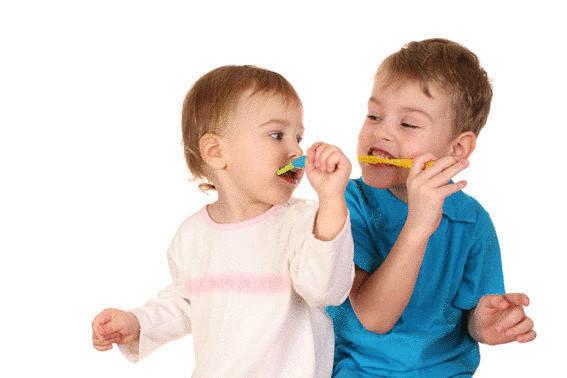
Teeth person are two times in life — the milk and permanent. Many parents do not attach much importance to the care of the milk teeth of the child and not to worry too much when they are struck caries. Why? After all, baby teeth will fall out anyway and in their place grow constants. These incorrect thoughts lead to unpleasant consequences.
Milk teeth – this is not a "trial". Premature loss of milk teeth leads to disturbances in jaw development of the child. Also, under the milk teeth are the beginnings of permanent teeth, and caries can penetrate to them, from which they can grow misshapen or crooked, or even break down.
Tooth decay is a serious problem. It negatively affects not only the health of your teeth and gums, but can be a cause of diseases of other organs.
Children who have dental problems, can meet such diseases:
- colitis
- gastritis
- cholecystitis
- allergic reactions
- diseases of the skin
- liver disease
- diseases of the pancreas
- disorders in the endocrine system
- kidney disease
- heart disease
- disorders of the nervous system
- rheumatism
The first symptoms of gingivitis is bleeding at the time of brushing or when eating hard food, and unpleasant smell from the mouth.
In our days there is no universal drug that would fight gingivitis and tooth decay. The only solution is prevention, which includes a thorough personal oral hygiene from early childhood.
Be sure to care for the oral cavity of the child from birth. In the future, the kid has to take care of their teeth. How is it to instill? The best way is through example. Brush your teeth with your child, thereby controlling whether he does it.
Until the kid's first little teeth have appeared, to care for the oral cavity you must use the gauze wipes. Experts recommend twice a week to wipe the mouth of the child with a cloth moistened with a weak solution of baking soda.
The first milk teeth appear in a baby aged six to eight months. From this age up to a year for oral hygiene crumbs you can use the brush-olivacce (worn on the finger mom). And remember, this one prorezalsya the tooth, careful care and protection.
When a child turns a year, you can begin to use the children's toothbrush with a small head and soft bristles. Twice a day (morning and evening) gently clean each tooth of the child. You can use small amounts of the children's gel toothpaste that does not contain fluoride. Why no fluoride? Fluoride, of course good for your teeth, but in children it can happen to overdose, which can cause tooth decay.
Brush teeth the kid in front of a mirror to see how to do it. In practice, then teach your child to use a toothbrush. Movement it must be made from the gum to the edge of the tooth (like "vymetaya, first front, then rear). Then you need to clean the chewing surface by putting the brush on the teeth and by moving along the jaw. Was interesting to the child to take care of the teeth – add in the process of cleaning the elements of the game. Imagine the heroes who kicked out the evil microbes from the mouth of a child and protects every tooth from their next attack.
At the age of three years the child must himself, twice a day, brush your teeth. But still it must be under strict adult supervision. To five years the child has cut all milk teeth, and formed temporary occlusion. From the age of six, the child has to appear first permanent teeth (the so-called "six, the first molars). In the same period begin to fall milk teeth and erupt permanent. Immediately after the eruption begins the process of maturation of the enamel (saliva absorbed essential minerals). It is therefore very important to keep the mouth clean so that plaque does not interfere with this absorption. From this point you can begin to use toothpastes that contain fluoride. These pastes can slow the formation of plaque, prevent loss of tooth enamel and can even restore it in the early stages of destruction.
Watch out for oral cavity your children and their teeth will always be healthy.
Source: globalscience.ru
